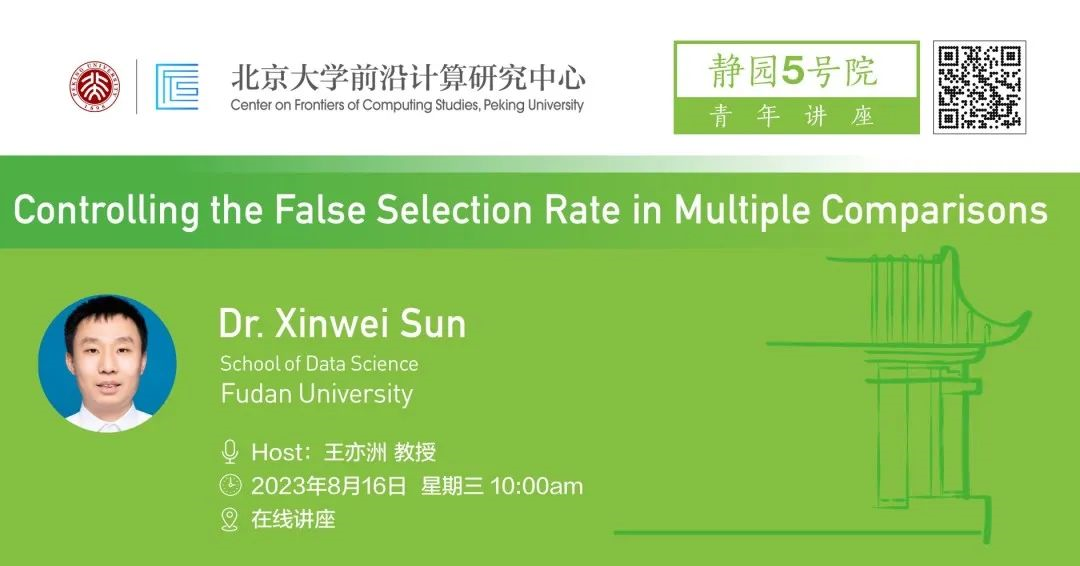Speaker: Dr. Xinwei Sun, Fudan University
Time: 10:00 a.m., August 16, 2023, GMT+8
Venue: Zoom Meeting ID: 842 5882 4868 Code: 241405
Abstract:
Multiple comparison problem, which studies the directional among multiple pairwise comparisons of parameter of interest, has widely applied in various scenarios such as neuroscience, social science, voting, psychology, utility learning according to human preferences. One critical aspect of this problem lies at the controlling of False Selection Rate (FSR) control, i.e., expected rate of false selections among all selections. Different from the standard variable selection problem, the sparsity constraint is enforced on the graph difference transformation of underlying parameters, which renders existing methods like Knockoffs ineffective for FSR control. In this talk, we will introduce a new method called Split Knockoffs, which can control the FSR under graph difference transformation. The proposed scheme relaxes the linear manifold constraint to its neighborhood, known as variable splitting in optimization. It yields an orthogonal design, beneficial for both power and directional false discovery rate control, yet with heterogeneous noise. Exploiting a further sample splitting scheme, the directional false discovery rate is under control. Simulation experiments and two real world applications, Alzheimer's Disease and human age comparisons, are conducted to show the efficacy of the proposed method.
Biography:
Xinwei Sun is currently an assistant professor with School of Data Science, Fudan University. He received his Ph.D in school of mathematical sciences, Peking University in 2018. His research interests mainly focus on statistical inference, causal inference, with their applications on medical imaging and machine learning. His work has been published/under revision on Journal of the Royal Statistical Society Series B (JRSSB), Journal of the American Statistical Association (JASA) , Applied and Computational Harmonic Analysis (ACHA), IEEE Transactions on Signal Processing (TSR), IEEE Transactions on Pattern Analysis and Machine Intelligence (TPAMI); and machine learning conferences such as ICML, NeurIPS, and ICLR.
Source: Center on Frontiers of Computing Studies, Peking University
